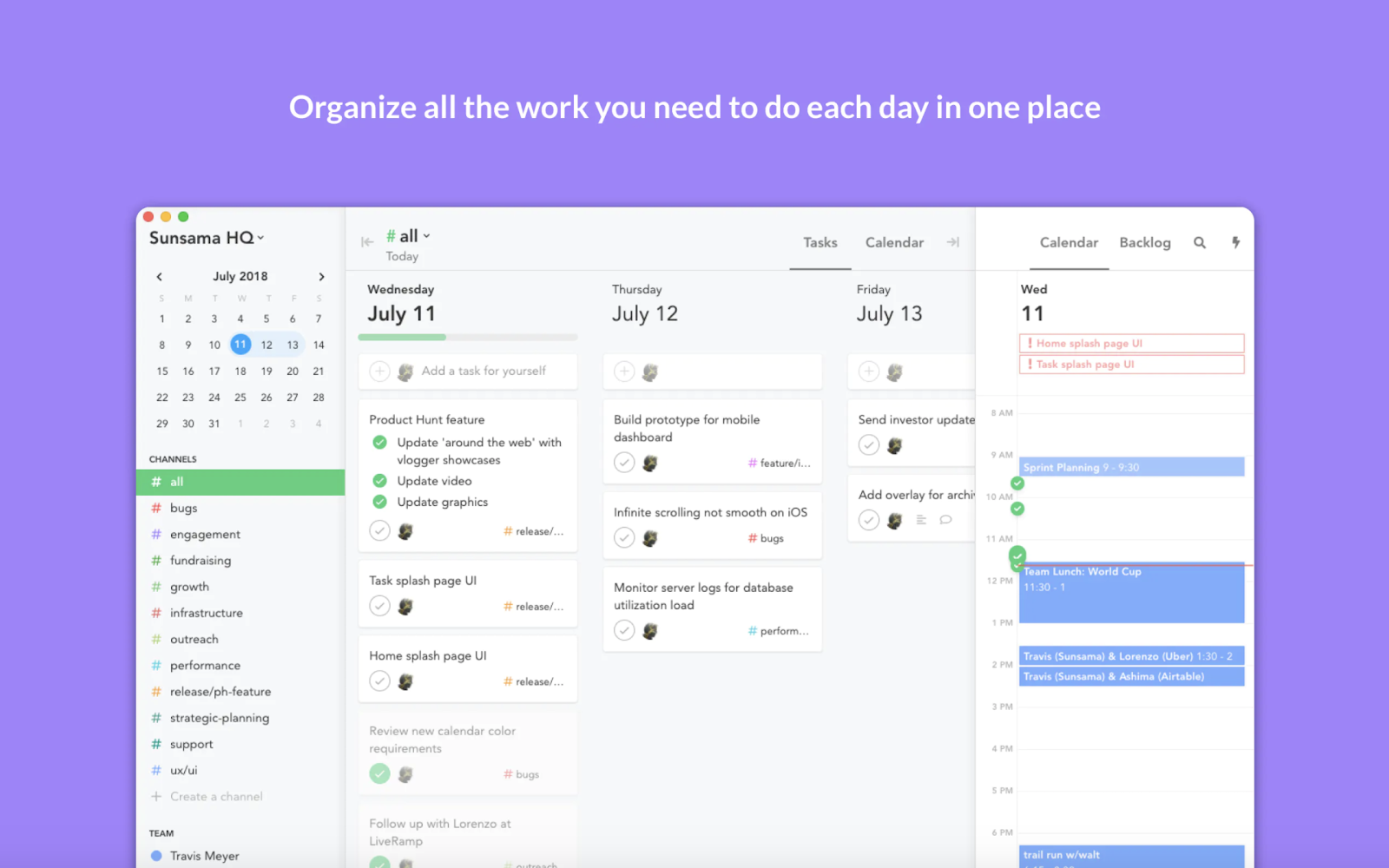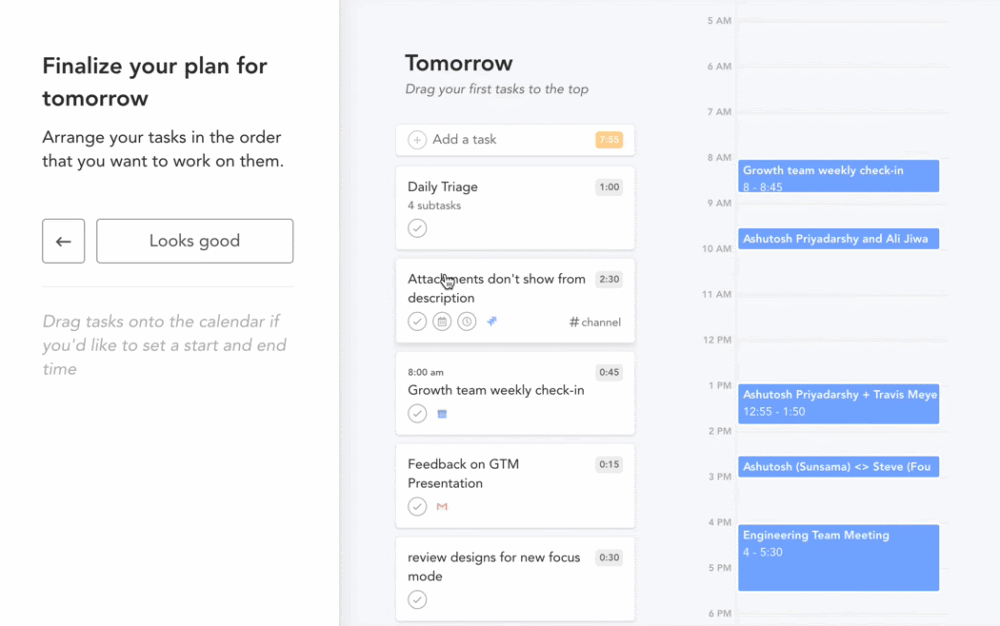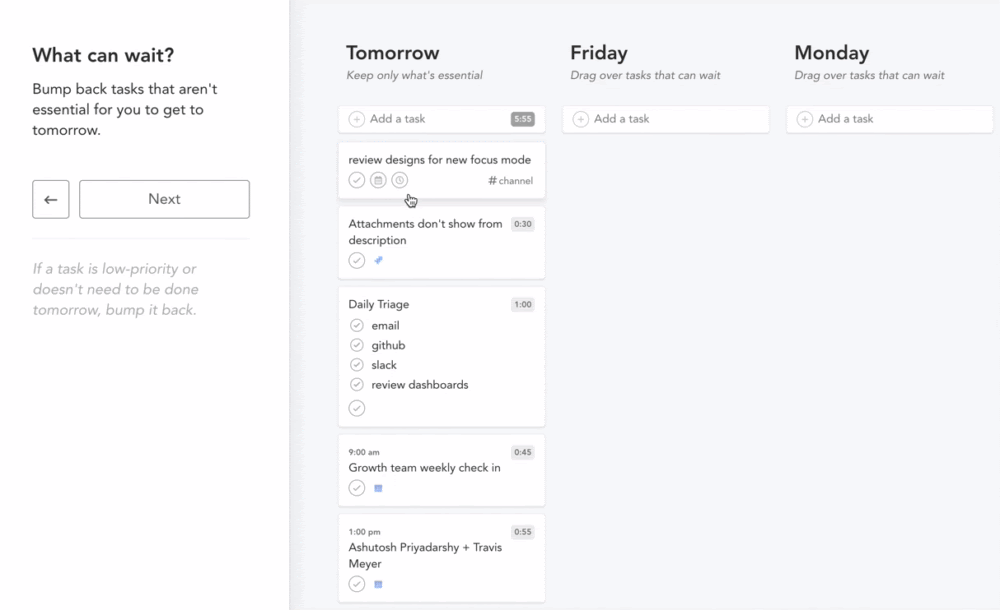Built With MongoDB: Sunsama
November 18, 2020 | Updated: October 17, 2022
My co-founder Travis Meyer and I were both one year into our careers when it hit us that we would spend the next 40 years using tools such as Google Calendar and Microsoft Outlook to map out our time. That felt unacceptable. We wanted to build a productivity tool that’s more thoughtful and intentional so we can live a life that’s more thoughtful and intentional. That’s when we started working on Sunsama.
Ashutosh Priyadarshy, Co-Founder, Sunsama

Ashutosh Priyadarshy, founder of Sunsama, and I first met in 2017. At that time, he was building a meeting documentation tool. He soon saw significant churn and realized that users didn’t love the product, so Sunsama pivoted.
Today, Sunsama is a Y Combinator-backed, invite-only daily task manager for busy professionals. Ashutosh says that in conversations with thousands of users, Sunsama found that people know what’s on their calendar, but also want to know how to think about their workday—how to answer the key question “what am I going to do today?”
Sunsama gives users the ability to combine all tasks, meetings, to-dos, and JIRA tickets in a prioritized calendar, enabling professionals to be more mindful of how they spend their time.

In this issue of #BuiltWithMongoDB, Ashutosh and I discuss his journey building Sunsama (including the pivots and successful fundraising) and how his team uses MongoDB to operate more efficiently.
Siya Raj Purohit: How big is Sunsama now?
Ashutosh Priyadarshy: We’re a team of five serving 2,000 active users. We graduated from YC in March 2019 and have since raised $2.4 million in seed money, were featured in TechCrunch and Cheddar, and were voted “Hot Product of the Month” on ProductHunt (read: Sunsama: If Trello & Google Calendar Had a Baby)”).
We’re growing 10 to 15% per month but generally limiting growth via invitations to ensure optimal user experience.

SRP: Why is Sunsama #BuiltWithMongoDB?
AP: We first decided to use MongoDB because a framework we wanted to use (Meteor) was tightly coupled with MongoDB. Our product doesn’t require all of the complexity of other database solutions, and MongoDB felt like a simple way to get started.
Initially, we deployed MongoDB on AWS ourselves. But we’re a tiny team of five people, and it was time-consuming to manage DevOps. Upgrading to MongoDB Atlas was an easy decision because we would rather spend slightly more money and have zero headaches so we can spend all of our time building for customers instead of building for internal tooling and DevOps. As a young team, you just can’t afford to dedicate resources to second-order issues, so outsourcing to MongoDB Atlas made complete sense.
Two or three years ago, we noticed that the MongoDB Atlas ecosystem was maturing beyond other tools out there: MongoDB added search, monitoring, and security features that were easy to set up. The timing was great: we were going through an audit with Google for getting our team integration approved, and Google looked at the entire surface area of the security app. Being able to plug and play—setting up the right type of encryption by just pressing a button—was really nice. We grew into MongoDB’s suite of products, and once we committed, we didn’t want to leave.

SRP: What MongoDB services do you use?
AP: We previously managed our own MongoDB deployment on Amazon EC2, and it was so much overhead. Our customers just wanted the product to work; they didn’t care about how our MongoDB instance was deployed. Thanks to MongoDB Atlas, we can focus on building things customers care about instead of maintaining our database.
MongoDB is also moving in a direction we’re excited about that will provide direct value to our customers, especially with MongoDB 4.2 and the ability to run Elasticsearch queries directly in MongoDB. This means we can further simplify our stack and remove expensive Elasticsearch deployments that we’ve got in AWS and use the simple and clean alternatives MongoDB provides.
Looking to build something cool? Get started with the MongoDB for Startups program.